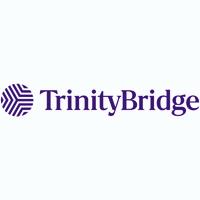Is phased retirement a win-win for both employers and employees?
Furthermore, in November, a report by think tank Resolution Foundation revealed that workforce participation among 55-64-year-olds had fallen by 1.2 percentage points since mid 2019. This fall bucked the trend in the decade leading up to the Covid crisis, when those aged over 50 accounted for 88% of the increase in the UK's labour force.

It is unclear how long this trend towards early retirement will persist, and it may recede with the pandemic. Nevertheless, in light of the ongoing labour shortage in the UK, organisations should consider how disruption to normal retirement patterns is likely to impact on their business, particularly their talent management strategy, over the short to medium term.
If a large number of employees take early retirement within a short space of time, an organisation could face succession planning issues. It might also have to spend significant sums on recruitment to replace key staff members who have left. A phased retirement programme can be a good way for organisations to retain the skills and talents of their older workers, while giving them greater flexibility around how they use their time.
What is phased retirement?
Phased retirement allows employees who are approaching retirement age to reduce their work hours gradually, over a number of months or years. This might involve the employee moving from full-time to part-time employment, taking on a job-sharing role, working a seasonal or interim basis, or changing their working pattern in some other way.
Employers are not legally bound to offer phased retirement. Nevertheless, phased retirement programmes can be very beneficial to both employers and employees. They enable employers to hold onto staff with valuable expertise, while potentially making savings on salaries and opening up new avenues for progression to younger staff. They can also facilitate succession planning if phased retirement is used as a way for older staff members to share their knowledge with junior staff members, equipping them with the skills they need to take on more senior roles.
Phased retirement gives employees the opportunity to gradually ease themselves into a new chapter of life. This is helpful as retirement can come as a shock, especially to people who enjoy their work and appreciate the social contact that the workplace provides. A report by the Government Office for Science highlights the value of longer working lives to individuals, saying: “Evidence shows that it gives people increased resilience in later life and those in employment perform best on almost every measure of cognitive function.”
Life-changing decisions
When people retire, they need to decide how they will fill the time previously spent at work, and they may want to coordinate retirement with their partner, for example. In addition, they will need to make some important decisions about how they will finance their lifestyles. Deciding how and when they will draw down on their pensions is a particularly key decision since it will affect their financial wellbeing for the rest of their life.
Employees who take phased retirement will still earn some income from employment. In fact, depending on their financial situation and lifestyle requirements, they may be able to live on this income without drawing on their pensions at all. Alternatively, they may need, or want, to draw down on retirement funds in either their defined contribution pension plan, their defined benefit pension plan, or both. Most people cannot access their pensions until they reach the age of 55 (57 from 6 April 2028).
When drawing down on their defined contribution pension funds as part of a phased retirement, employees have a number of options. These include taking a tax-free lump sum, buying a guaranteed income in the form of an annuity, withdrawing amounts from their pension as needed, or doing a combination of these. Employees should be aware, however, that if they start to take money from their defined contribution pension funds, they may trigger the Money Purchase Annual Allowance. As a result, their tax relief may be reduced on any money they pay into their pension – so instead of benefitting from the Annual Allowance of £40,000, they will have a reduced allowance of £4,000 a year.
If drawing down on a defined benefit pension scheme, employees need to understand the associated long-term implications. If they switch to phased retirement before their scheme’s normal pension age, their pension, and any lump sum that they are entitled to, is likely to be reduced.
Action plan for employers
While phased retirement can be a win-win for both employers and employees, it is still not a formal practice in most organisations. A good starting point for employers who want to offer phased retirement is to draw up an appropriate policy that clearly explains the phased retirement options available to employees.
Under the Equality Act 2010, employers are not allowed to ask employees direct questions about when they plan to retire. If an employee initiates a discussion about phased retirement, however, an employer is able to respond openly. It is also important that employers talk to the manager of their occupational pension scheme, to establish whether the scheme currently supports phased retirement or working beyond the scheme’s normal pension age. If not, can the scheme be adjusted to make provision for partial drawdowns?
There are a number of practical, legal and financial implications for employers to think through when offering phased retirement to their workforce. Yet, in an age when people are living longer, healthier lives, and organisations are competing fiercely for sought-after skills, it makes sense to consider phased retirement as a powerful talent retention tool.
This article was provided by Close Brothers
Supplied by REBA Associate Member, TrinityBridge Limited, formerly Close Brothers Asset Management
TrinityBridge has been delivering workplace financial wellbeing programmes to some of the UK’s best-known employers for over 55 years.







